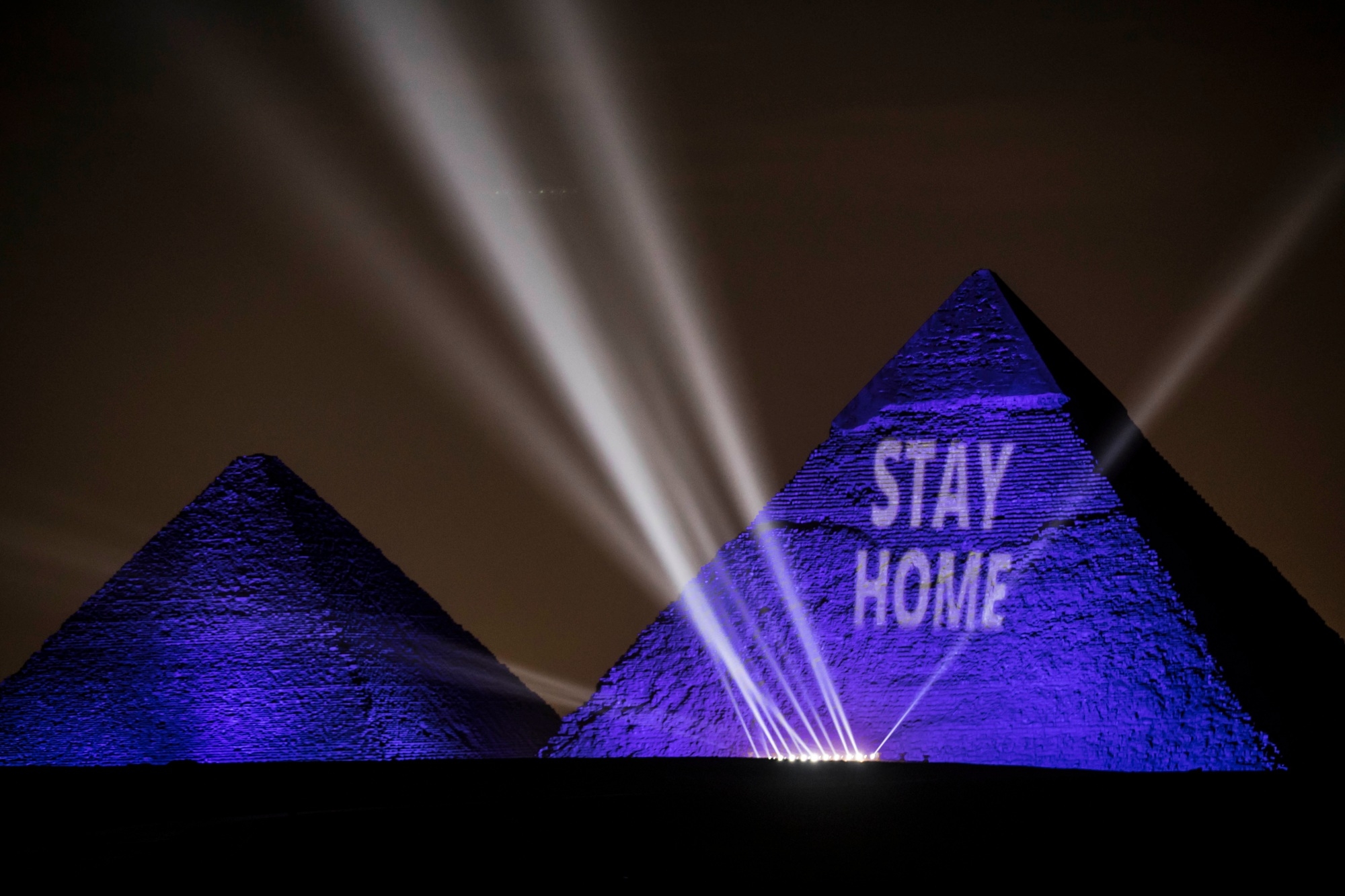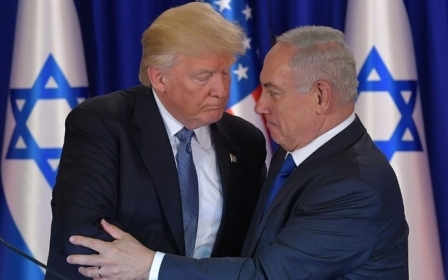Arabic press review: Egypt moguls hope Covid-19 donations will burnish their image

Kuwait allows in Gulf visitors with Israeli visas
Well-informed security sources in Kuwait have told newspaper Al-Anbaa that state authorities have allowed citizens of the United Arab Emirates and Bahrain who have visited Israel or whose passports include Israeli stamps to enter Kuwait - a change from usual regulations.
The source stated that an agreement has been reached between the Gulf Cooperation Council (GCC) member states guaranteeing the circulation of these countries’ citizens in the Gulf region, while noting that Kuwait was not involved in the normalisation agreements of its neighbours with Israel.
"According to the Gulf agreement, every Gulf citizen has the right to enter Kuwait with the passport of his/her country of residence, even if the passport includes an entry and exit stamp" from Israel, al-Anbaa quoted the source as saying.
The source pointed out that many US and European citizens enter Kuwait with passports used previously to visit Israel.
New MEE newsletter: Jerusalem Dispatch
Sign up to get the latest insights and analysis on Israel-Palestine, alongside Turkey Unpacked and other MEE newsletters
Kuwaiti officials had previously stated that the holders of passports with Israeli stamps or visas were automatically banned from entering the country.
For Egyptian businessmen, Covid-19 is an opportunity to fix their reputation
A number of Egyptian businessmen have recently made donations to support efforts to confront the coronavirus pandemic, moves which some have viewed as a strategy to improve their public image, according to Al-Quds Al-Arabi.
The Egyptian Ministry of Health revealed a list of donors that included the names of eight businessmen who have donated funds to buy vaccines and fight the pandemic in recent months.
The list included well-known Egyptian businessman Hisham Talaat, who pledged to provide the coronavirus vaccine for about two million citizens who cannot afford it.
Talaat was convicted of murdering a Lebanese singer in Dubai in 2008, and was tried and imprisoned, until Egyptian President Abdel Fattah el Sisi recently issued a special pardon.
A businessman accused of collaborating with Israel took part in the charitable initiative, according to the newspaper, while another, Ramy Lakah, had fled Egypt before the 2011 uprising after embezzling funds from banks, returning to the country under a special agreement with authorities to return the stolen money.
Lakah reportedly donated 30 million Egyptian pounds ($1.9 million) to confront the pandemic.
Syrian businessmen tied to Beirut port ammonium nitrate
A television investigation aired by Lebanese news channel Al Jadeed has alleged that Syrian businessmen close to Syrian President Bashar al-Assad were tied to a large shipment of ammonium nitrate stored in the Beirut Port, which led to a deadly explosion on 4 August.
The investigation claimed a connection between Syrian engineering and construction company Hesco and British company Savoro. The latter purchased in 2013 large quantities of ammonium nitrate that were confiscated by Lebanese authorities, until the explosion that devastated entire neighbourhoods of the Lebanese capital.
The investigation revealed that some companies managed by Syrian businessmen, including Hesco, shared addresses with Savoro.
Al Jadeed added that the three Syrian businessmen it investigated were previously on the US sanctions list for supporting the Assad government, and that Hesco was dissolved three months after the Beirut explosion.
However, other Lebanese journalists have cast doubts on the conclusions drawn by Al Jadeed’s investigation.
While results of a full official investigation into the blast have yet to be unveiled, it is widely believed that corruption among Lebanese authorities and poor storage conditions in the Beirut port were the main conditions that led to the explosion happening.
Foreigners acquire Iraqi citizenship through fraud
An investigation by the Iraqi Integrity Commission has revealed that hundreds of foreigners acquired Iraqi nationality with falsified documents, according to Al-Araby al-Jadeed.
The commission did not reveal the nationality of the foreigners who were granted citizenship, but said that the investigation had unveiled 1,360 falsified transactions on the basis of which Iraqi citizenship was granted to foreigners in the Diyala governorate, which borders Iran.
One of the employees accused of forgery was arrested.
Iraqi legal expert Tarek Harb told Al-Araby that what happened in Diyala was a recurring issue, but that only some cases had been discovered, explaining that similar incidents took place in different regions of Iraq.
*Arabic press review is a digest of reports that are not independently verified as accurate by Middle East Eye
Middle East Eye delivers independent and unrivalled coverage and analysis of the Middle East, North Africa and beyond. To learn more about republishing this content and the associated fees, please fill out this form. More about MEE can be found here.




